The Story of Skype: A Success Tale Defying Global Pressure

💡 Want more business insights? Stay ahead of the curve with our exclusive updates!
👉 Join our Telegram channel for daily business ideas and expert tips.
👉 Follow us on Facebook to never miss a trend or update!
Don’t just read—connect, grow, and innovate with us today!
Try finding a modern person who hasn't used the program Skype at least once. This service, though not entirely free, has become an integral part of our daily lives, essential for comfortable communication in the modern world.
However, not everyone knows the challenging journey behind the creation of this service. From the inception of the business idea based on an innovative communication and file-sharing service to its successful implementation, the team of developers had to put in a lot of effort. Drawing inspiration from Skype's history can help you successfully bring your own business ideas to life.
How It All Began
The future creators of Skype - Niklas Zennström and Janus Friis - started working on the entertainment portal Everyday.com in 2000, operated by the Estonian division of the Swedish media company Tele2.

The company advertised for programmers with a salary of $300 per day. Responding to this were Jaan Tallinn, Ahti Heinla, and Priit Kasesalu, who had previously collaborated at their own small studio, BlueMoonInteractive. Their main achievement was the game Kosmonaut, which gained popularity in Estonia but remained relatively unknown in other countries.

Although the entertainment portal was quickly launched, it turned out to be commercially unsuccessful. Working on it did not make Niklas Zennström and Janus Friis wealthy, but it provided them with invaluable experience. After leaving Tele2, the partners returned to Amsterdam and began contemplating a new project.
At that time, the file-sharing service Napster gained scandalous popularity in the U.S., leading to legal battles due to objections from representatives of Metallica. Niklas Zennström and Janus Friis decided to create a similar service, hoping to reach agreements with representatives of music labels and the movie industry. Once again, they enlisted three friends from Estonia as programmers for their new venture.
KaZaA - The Scandalous Predecessor of Skype
In September 2000, the KaZaA project was launched, quickly gaining scandalous notoriety. One key difference from Napster was its new file storage system, using participants' computers in a peer-to-peer network, making it nearly impossible to shut down the service by seizing a central server. This approach made KaZaA the most downloaded program on the internet from its early days.

However, the Swedish duo’s main hope was not fulfilled - representatives of the movie and music industry saw KaZaA as another pirate service to be fought against vigorously. American lawyers tried to pressure the development team, leading to a setup resembling a spy thriller — involving constantly changing offices and meeting places, encrypting their correspondence, and more. Initially, the Estonian government shielded the KaZaA creators from American demands to interrogate the programmers from the former Blue Moon Interactive studio.

However, this situation could not last forever, and eventually, the interrogation of the three Estonian programmers took place. No charges were filed. Pressure on the KaZaA owners intensified, leading Niklas Zennström and Janus Friis to decide to sell the service to the Australian company Sharman Networks, which was not afraid of legal battles with labels.
However, this confrontation did not come without a cost for the Swedes — around $100 million was paid out of their own pockets in 2006 to settle copyright infringement lawsuits with several major music labels.
The Emergence of Skype
It's quite predictable that such proactive businessmen as these two could not sit idly by for long. The Swedes sold Sharman Networks only the service itself. The peer-to-peer network technology was patented, with patents held by a specially created company registered in the offshore zone of the British Virgin Islands. This move prevented music labels from interfering with Sharman Networks' operations. Consequently, Niklas Zennström and Janus Friis could continue utilizing the technologies they had developed.
Thus, the idea of creating a service for voice file exchange was born. This required simply reconfiguring the existing technology for transmitting digitized sound instead of file sharing.
Once again, the three Estonian programmers started working on the project. That's why Tallinn became the headquarters of the new project. By 2003, an alpha version of the program was created, named Skype from the English words "sky" and "peer". The initial version of the name was Skyper, but a similar domain name was already taken, so the creators decided to drop the last letter.
Success had to be pursued while overcoming difficulties. Initial reviews of the program were skeptical, and there was a lack of funding for promotion. However, the company secured investments and released a working version of the application. A legal entity was registered in Luxembourg, as it is a state that does not interfere in the operations of its large business representatives, proving to be a very visionary decision — after all, the free communication service became a major threat to all global telecommunications companies.
From that point onwards, success consistently accompanied the service — 10,000 people downloaded the client on the first day, and the user base continued to grow steadily.
In the summer of 2005, the well-established Skype service was sold to the largest online auction site, eBay, for an impressive sum of $2.6 billion, ensuring a lifetime of financial security for the Swedish partners who became billionaires, while the Estonian programming team earned $42 million each. Shortly after, Microsoft acquired Skype and continued to enhance the success of the application. However, this phase of Skype's story is no longer directly connected to its original creators.
Interestingly, Skype was not only a thorn in the side of telecommunications companies but was also met with resistance from some governments. In Russia, there were several attempts to shut down Skype, citing security threats and non-compliance with SORM regulations. In Belarus, Skype can only be used for personal IP telephony purposes. In China, Skype is entirely banned, and in Ethiopia, using it could lead to a 15-year prison sentence.
As you can see, success comes to those who persevere and strive towards their goals despite strong opposition from commercial and governmental entities. Don't stop at where you are; keep pushing forward, and you could achieve the same level of success as Skype, Avon, and other business legends.
If you enjoyed this article, share it with your friends; perhaps it can inspire them to achieve extraordinary things in business too.
💡 Want more business insights? Stay ahead of the curve with our exclusive updates!
👉 Join our Telegram channel for daily business ideas and expert tips.
👉 Follow us on Facebook to never miss a trend or update!
Don’t just read—connect, grow, and innovate with us today!



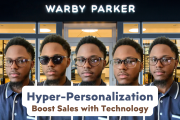































.jpeg)













Note: Comments are being moderated and may take a while to appear. There is no need to resubmit your comment.